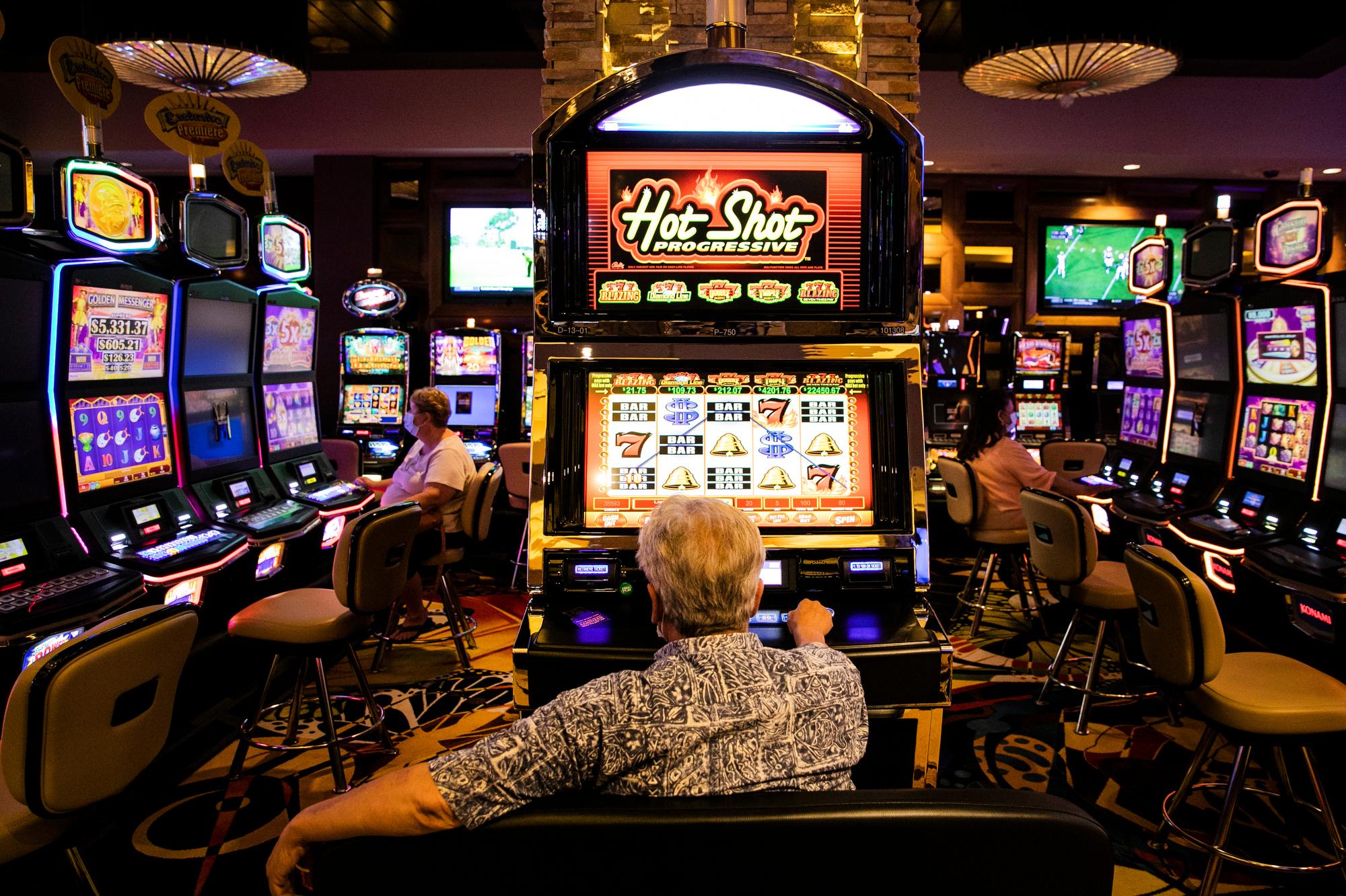
Casinos are wagering an amendment to the state’s constitution will help lure the high rollers that typically leave Colorado to gamble.
Coloradans are voting this election on Amendment 77, which would let residents of the state’s gambling towns decide whether to lift a statewide cap on how much a person can risk on a single bet. The measure also includes adding new games.
Supporters of the changes say they would make Colorado more competitive with other states that don’t set betting limits — and have a wider array of games.
For example — baccarat. Currently, betters can’t play the popular card game in Colorado casinos. That pushes people to go elsewhere, said David Farahi, chief operating officer at Monarch Casino in Black Hawk.
“Most of those people go to Las Vegas,” Farahi said.
Casino operators — including Monarch — are backing the campaign supporting the ballot measure. Other large donors include casino owners Caesars Entertainment and Penn National Gaming.
Colorado residents spend roughly $300 million in out-of-state casinos annually, according to a report commissioned by Monarch. Farahi doesn’t think people will stop going to Las Vegas, but says the state’s casinos could take a bigger slice of the gambling pie. Of course, that’s good for the bottom lines at casinos, but it’s also good for jobs and the economy, he said.
“The person that goes to Vegas, six, 10, 12 times a year — if we can get them to come to one of Colorado’s three gaming towns one or two or three of those times — it keeps the dollars in the state, “ he said.
Casino gambling has been legal in Colorado for 30 years. The state’s restrictions have loosened over the decades. In 2009, the limit on individual bets was raised from $5 to the current $100. Last November, Colorado voters made sports betting legal.
Still, casinos are restricted to three historic mining towns in the state: Central City, Black Hawk and Cripple Creek. Jeremy Fey, the mayor of Central City, says most of the operators in his town are smaller, and less affected by the rules. He doesn’t see them changing their rules right away — because it costs money.
“Little costs of changing the little placards on all the tables, getting new machines, all that stuff — there’s an upfront cost in that that I don’t believe, in talking to our operators, it will be worth it to them right off the bat,” Fey said.
Black Hawk, home to the largest resorts with the deepest pockets, is the city most likely to see immediate effects, Fey said. The impact for the smaller towns would likely be slower.
Detractors say opening the door to unlimited betting could create more problems than it’s worth. High-stakes betting could lead to a higher rate of problem gambling in the state, said Jeff Hunt, the director of the Colorado Christian University’s Centennial Institute, a conservative think tank.
“People could be losing unlimited amounts of money, jeopardizing their mortgage payments, their healthcare payments, their college payments,” Hunt said.
The impact of previous limit increases hasn’t been closely studied in Colorado.
The fate of casino gambling will be in the hands of just a few Coloradans if the amendment passes. Combined, the three gambling hubs have a population of roughly 2,000, according to the most recent census data.
The potential negative effects could extend beyond the boundaries of those tiny mountain towns, Hunt said.
“This is going to spill out into the community, and we're gonna have to deal with the social consequences of this whether you live in the three mountain communities or not,” he said.
Cripple Creek, a city of roughly 1,200, is the most populous of the state’s three gaming towns. The local community supports the measure, said Jeff Mosher, the town’s events coordinator. The casinos are a major contributor to the town’s economy, he said.
“That’s what keeps our lights on and our roads paved,” Mosher said.
The town could use the additional cash, especially now, he said. The state’s gambling towns were hit hard by the pandemic. Gaming revenues essentially went to zero in April and May during the shutdown. They’ve bounced back somewhat since casinos reopened in June – but there’s still a hole in local budgets.
Still, there’s no official estimate on how much additional revenue the changes might bring — and whether it’ll be enough to help. And Colorado’s gaming scene is nowhere close to competing with the glitz and entertainment options in Las Vegas.
“We still don't have, you know, a Michelin restaurant at every casino, or there's not gonna be a Cirque du Soleil in Central City anytime soon,” Fey said.








